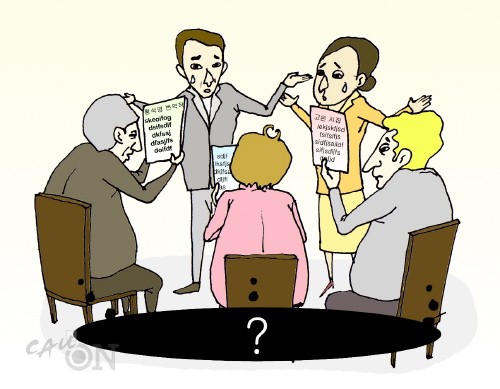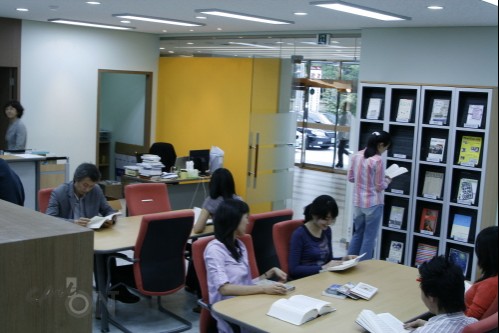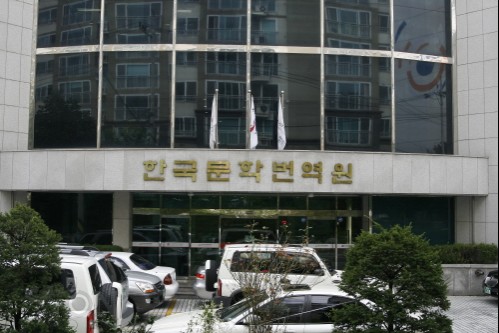
If the present situation of translation of Korean literature is not revitalized compared with other countries, "Literature works from China and Japan are translated more often than Korean literature works. In foreign bookstores and libraries, China and Japan have their own bookshelf, but Korean literature works are placed in series of Asia literature," Park Hye Ju working in the Korea Literature Translation Institute said. We can see Korean electronic products so easily in the foreigner’s house, but we cannot find Korean poems or novels in foreigner’s bookstands. Japan already produced two Nobel Prize winners for literature, Yasunari Kawabata in 1968 and Kenzaburo Oe in 1994, through diligent effort and publicity. Besides, until the early 1990s, Japan already had translated more than 20 thousands of their literature works into foreign languages. On the other hand, Korea has translated only about 1500 literature works. Korean government started support in 2001 when the Korea Literature Translation Institute was founded but it was too late. Human resources are insufficient, too. There are only 80 foreign translators, who introduce Korean literature to the world. According to statistics, until November, 2006, there are only 5 Korean authors who had translated and published more than twenty literature works.
There are many causes for these problems with translation of Korean literature. First, the government’s financial support is insufficient. Korea Literature Translation Institute, which is the biggest institution on translation of Korean literature, has a real budget of only four billion won. "It is so insufficient. The Government’s financial support is an important matter," said Yoon Ji Gwan, the principal of Korea Literature Translation Institute in a speech.
Second, the effort to train and raise human resources is too short. Now there are only two universities, which teach translation of Korean literature among Korean universities; Hankuk University of Foreign Studies and Ewha Woman’s University. Moreover, there are too few foreign translators. "Usually, translation is done so that a foreign language is translated into the translator’s mother tongue, but there are few foreign translators, who can translate Korean literature into their mother tongue. Moreover, in foreign languages other than English, this problem is more serious." Park Hye Ju said, "Even if translator knows a foreign language, translation is a difficult and specialized field. Insufficiency of translator causes a situation that translation is done by inexperienced translators, and this situation is connected to the devaluation of Korean literature." It would be better not to do it at all than to translate in a wrong way.
Third, publicity and management of translated literature works is deficient, too. In many foreign countries, foreigners do not know about Korean literature very well. For example, in Germany, there are only 13 literature works among 55 literature works, which are translated from Korean to German. Literature, which is not read by foreigner, is just a useless thing. "It is true that German publishing companies are not interested in Korean literature, because it can scarcely make money." Golchert, who is translating Korean literature into German, said in a discussion meeting of foreign Korean literature translators last September 10th that private publicity has its limits, because publication work is related to monetary gain problems.
Finally, the Korean language’s characteristic is a problem, too. The Korean language can be expressed infinitely because it is an agglutinative language. Besides, it has so many various terms of respect. These characteristics make translators face difficulty in translating Korean literature. "Translation of Korean literature is, relatively, easy to Chinese and Japanese who use a Chinese character in common. Moreover, the Korean language has so many expressions. In 1950 when I learned Korean, I heard that I must learn as many as 36 purely Korean vocabularies to understand the word ‘black’ perfectly." Picht who is translating Korean literature into German said.

One side, there is an opinion that we must establish a translation school of Korean literature. In 2004, Yonsei’s publishing department published translated Korean literature into foreign languages. This book was written from scholars who are working in Information Centers of European Culture. The book is checking a present condition of translation of Korean literature and indicating its problems and solutions. An attractive part is the solutions. That is summarized to ‘a translation school of Korean literature’. This solution is looking forward towards the future of Korean literature. It is not just a solution to win the Nobel Prize, but is a solution to taking Korean literature abroad.

Korea Literature Translation Institute(KLTI)
Many foreign translators who translate Korean literature used to say that translation of the Korean language is too hard. However, in other word, having a various and abundant linguistic expression indicates a boundless possibility that Korean literature has in the world. Accordingly, if we endeavor to translate Korean literature into foreign languages satisfactorily, Korean literature will be a literary work, which is respected from the people of the world.
박준범 reporter
pjunbum@hotmail.com

